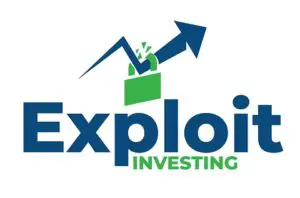
You might naturally feel a little overwhelmed when looking at all the options for investing your money. Beginners often find themselves confused by the jargon describing similar options with significant differences. One such question is about the distinction between investing with a bank or a broker.
It is better to invest with a bank if you want to maintain your money with minimal risk. On the other hand, a broker offers many advantages, including more opportunities for fast growth, in-depth knowledge of the stock market, and fewer fees.
The key to making the most of your investment is understanding the benefits of each option. From there, you can better select one to suit your needs.
Should I Invest With a Broker?
If you’re a beginner to the market and looking to invest your money in a way that counts, it’s a great idea to look into getting a broker.
You should invest your money with a broker if you want to grow your wealth quickly with relatively low risk. The stock market always carries a degree of risk, but brokers eliminate a portion of that risk through experience and financial expertise.
What Do Stock Brokers Do?
Stockbrokers analyze the market and achieve alpha or returns while simultaneously reducing risk or beta. They work closely with clients to help them meet their financial goals by investing money in assets that match their desired risk level.
There are a few benefits that stockbrokers bring to the table, so let’s take a look at them now.
Strong Financial Training
A person doesn’t become a stockbroker overnight, as it takes years of practice and education.
Becoming a broker requires an advanced college education. While you can become a broker with a bachelor’s degree followed by an internship, many take the additional step to earn their master’s degree in business.
Either way, this route requires close, one-on-one training with vested experts before fledgling brokers are trusted with client money.
Brokers are also required to gain certification through the Financial Industry Regulatory Authority. This certification requires brokers to pass a rigorous exam and may be followed by additional licenses.
When shopping around for a broker, look into their licenses. Even those that don’t necessarily seem like a requirement for your needs show another level of dedication that you’ll want from the person handling your money.
Less Stress
If you’ve spent any time at all in the world of investing, you know that with greater risk comes the more significant potential for reward. But you also have a bigger level of anxiety and stress, especially if you are investing more money.
By trusting your investment with a broker, you can add higher-risk investments to your portfolio than most banks and worry less about how risky investments are being handled. Brokers spend all day in the high-stress world of finance, and they’re experts at developing the emotional temperament needed to immerse yourself in this environment and still come out top.
You can leave your money in expert hands, allowing them to make the big decisions while your focus remains on your own talents.
How To Pick a Broker
Before attempting to invest money in a single broker, take the time to answer a few questions for yourself.
- How much are you willing to invest?
- What are your financial goals?
- How involved do you want to be in the day-to-day activities of your trades?
- What kind of help do you most need?
It’s best to have a full, complete understanding of your financial goals before you even attempt to look at a broker. Once you’ve done that, it’s time to shop around.
As you do, remember to ask them a few questions, like:
- Is the brokerage registered with the Financial Industry Regulatory Authority (FINRA)?
- What kind of Insurance do they offer in the case of company failure?
- What protection do they offer against fraud?
- Is the brokerage covered by the Federal Deposit Insurance Corporation (FDIC)?
As always, read online reviews to see what other customers have said about this brokerage before entrusting them with your money and private information.
Is It Good To Invest in a Bank?
It is good to invest in a bank if you hope for slow growth with minimal risk. When you place your money in a bank, the beta or volatility will be low leading to far less swings in account valuation. Banks represent a safe place for your funds, but frequently at the cost of higher fees.
When answering questions surrounding finances, it’s challenging to speak in terms of “good and bad” or “better and worse.” Everything is a matter of personal goals and how one hopes to achieve them.
However, before investing in a bank, there are a few things you may want to consider.
Non Aggressive Financing
Banks take a reasonably passive approach towards financing. Though they place a certain amount of your portfolio in stocks, most of their investments tend to be low-risk.
These offer a good amount of stability. However, many financial experts believe that banks leave some of your money on the table by neglecting to take a more aggressive approach to finance.
If you are looking for a safe, low-risk investment method, other options are available to suit that need with a higher return on investment.
Insurance… With Some Limitations
One of the biggest draws towards investing in a bank is the guaranteed insurance. What many people do not know, however, is that this perk comes with some limitations.
Though the FDIC insures banks against failure and fraud, this only covers up to $250,000. True, this is a large sum, but if you are building towards a significant purchase or saving money for your retirement, then this limitation is something you should keep in mind.
Another downside to this insurance is that the FDIC only covers bank deposits.
The money tucked away in your savings and money markets might potentially be gone forever. This insurance also doesn’t cover any money your bank has invested in stocks, bonds, or other outside assets.
Greater Access
When your money is in the bank, it is still effectively your money. You can spend it, move it, and access it with a relatively comfortable amount of ease. But once you invest money with a broker, you may be required to jump through some hoops to access it.
While it is still every bit your money, you just won’t be able to immediately draw from it the way you would with cash squirreled away in a brick-and-mortar bank. With the exception of CD’s for banks.
Lower Return Rate on Average
The average broker can achieve an annual return of 8-10%. This money is then reinvested, allowing you to take advantage of compounding interest to make money on your earnings.
This interest really makes investing with a broker the financial boon that it is. Higher compounding rates represent fast long-term growth, which builds retirement funds, increases financial security, and creates true wealth.
By contrast, a bank grow investments at a far lower annual rate of between 3 or 4%. Between taxes and regular inflation, this speed is not enough to help your money increase in the long run.
Can You Invest in Both a Bank and a Broker?
You can invest in both a bank and a broker, as this is a strong financial decision. Doing so will allow you to take advantage of the stability offered by a bank while also allowing you to watch your hard-earned money grow.
Knowing how much of your money to balance between your bank and your broker can be tricky, and the process differs depending on who you ask.
Some people recommend placing most of your money in savings, but that creates a stagnant cash flow. Others, however, suggest going all-in on your brokerage, but that leaves you in a precarious situation if you were to need your cash back fast.
A good rule of thumb is to keep three to six months’ savings within easy access, such as in a savings account. This precaution should allow you plenty of cushion in the case of emergencies, such as job loss, tragedy, or emergency house repairs. You can invest money beyond that sum in a brokerage without too much fear of a major financial breakdown in case of a steep market drop.
Exploit Your Investing Advantage
While banks offer a tremendous amount of security and financial freedom, they also have limited growth opportunities. In most cases, you’ll find that your money is still in safe hands with a broker, who can hold your funds and nurture them into valuable growth.
Even with the help of experts, controlling your finances takes a certain amount of personal responsibility. Know what you want, do your research, and if a risk feels too great, don’t be too afraid to back away.
If you decide to take a more hands on approach and decide to learn how to invest, then consider exploiting your small investor advantage and learn more about investing on this website.
I invest in small cap and micro cap companies and track my progress on my portfolio reports.
Also take a look at our recommended brokerages and see if they are right for you.
